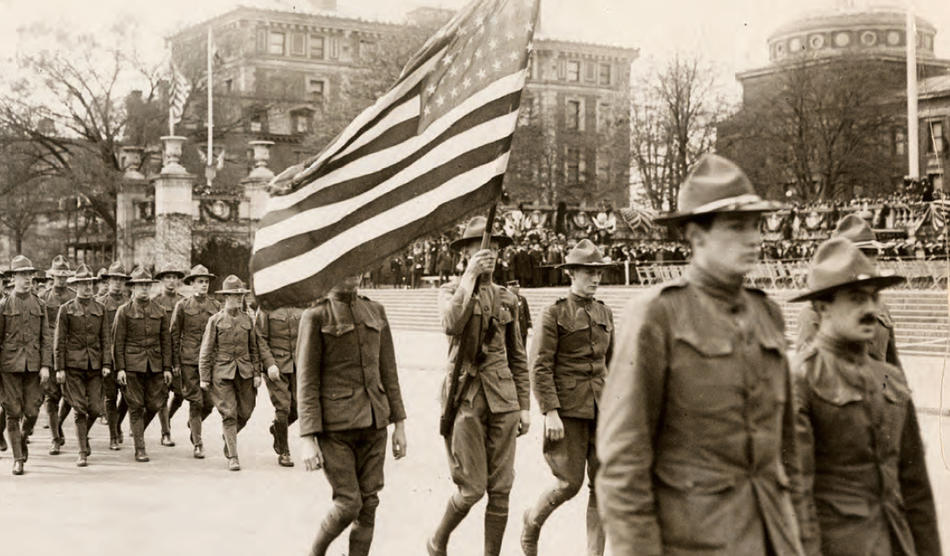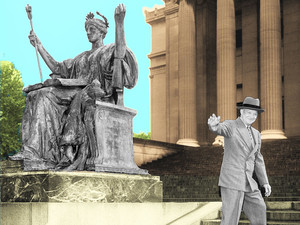A hundred years ago, Alfred Joyce Kilmer 1908CC published Trees and Other Poems, whose title poem begins with the famous couplet I think that I shall never see / A poem lovely as a tree. The same year, many miles away in Sarajevo, a Bosnian Serb shot Archduke Franz Ferdinand, heir to the Austro-Hungarian throne.
The Great War that sprang from the assassin’s bullet that summer had consequences for Kilmer and hundreds of other Columbians. Among the Columbia war dead, Kilmer is remembered best; for the battlefield death of a young poet, even a lesser poet, savors of poetry. (The former New York mayor John Purroy Mitchel 1899CC rates less fame, though that may be in part because he perished in an aerial training mishap in Louisiana.) But a perusal of the Columbia University Roll of Honor website, which pays tribute to Columbians who fell in America’s wars, opens our eyes to the immeasurable sacrifice of the student and alumni community.
There are 204 names listed under World War I. Some died in combat, others in training accidents. Many died of disease. The list suggests a deep forest of unheralded stories. We have, at a glance, the Vedder brothers, Harmon 1918CC and James 1919CC, who died within five weeks of each other at ages twenty and twenty-one respectively, and are buried at the Somme American Cemetery in France; Henry Rosenwald Guiterman 1919CC, whose grandmother, in 1921, donated in Guiterman’s honor the house at 534 West 114th Street for the Pi Lambda Phi fraternity (the house is now used for the Kappa Alpha Theta sorority); Rexford Shilliday 1919CC, whose bunkmate wrote that when he found Shilliday a half mile from the airfield over French lines, dead in the wreckage of his “machine” sunk nose-first in the turf, “there was a smile on the face.” And while few remember Carlos Dámaso Siegert Wuppermann 1907CC, who died in 1919 while serving in the occupation army in Germany, everyone remembers his youngest brother, Frank Morgan, who played the Wizard of Oz.
Joyce Kilmer fought with the renowned and largely Irish “Fighting 69th” regiment from Manhattan. On July 30, 1918, near the Marne River in France, Kilmer accompanied future CIA progenitor Major William “Wild Bill” Donovan 1905CC, 1908LAW into battle. There, a bullet from a German machine gun struck the poet’s brain, killing him at age thirty-one.
Kilmer was not just the most famous Columbian to die in the war, but arguably the most famous American. There are Kilmer memorials throughout the United States, including the 3,800-acre Joyce Kilmer Memorial Forest in North Carolina, dedicated in 1936 at the behest of the Veterans of Foreign Wars.
But the arboreally minded Kilmer had other trees in mind in 1918. On March 7 of that year, in the woods of Rouge Bouquet, a German artillery shell landed on the roof of a trench that concealed members of the Fighting 69th. Nineteen men were buried alive. In the following days, Kilmer wrote “Rouge Bouquet” in memory of his comrades:
And up to Heaven’s doorway floats,
From the wood called Rouge Bouquet,
A delicate cloud of buglenotes
That softly say:
“Farewell!
Farewell! ...”



